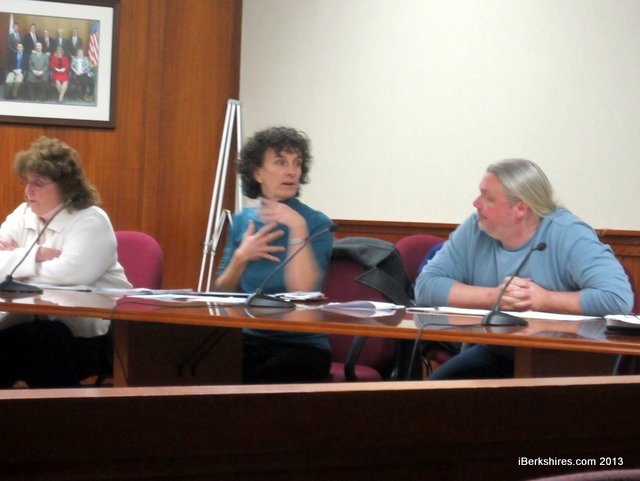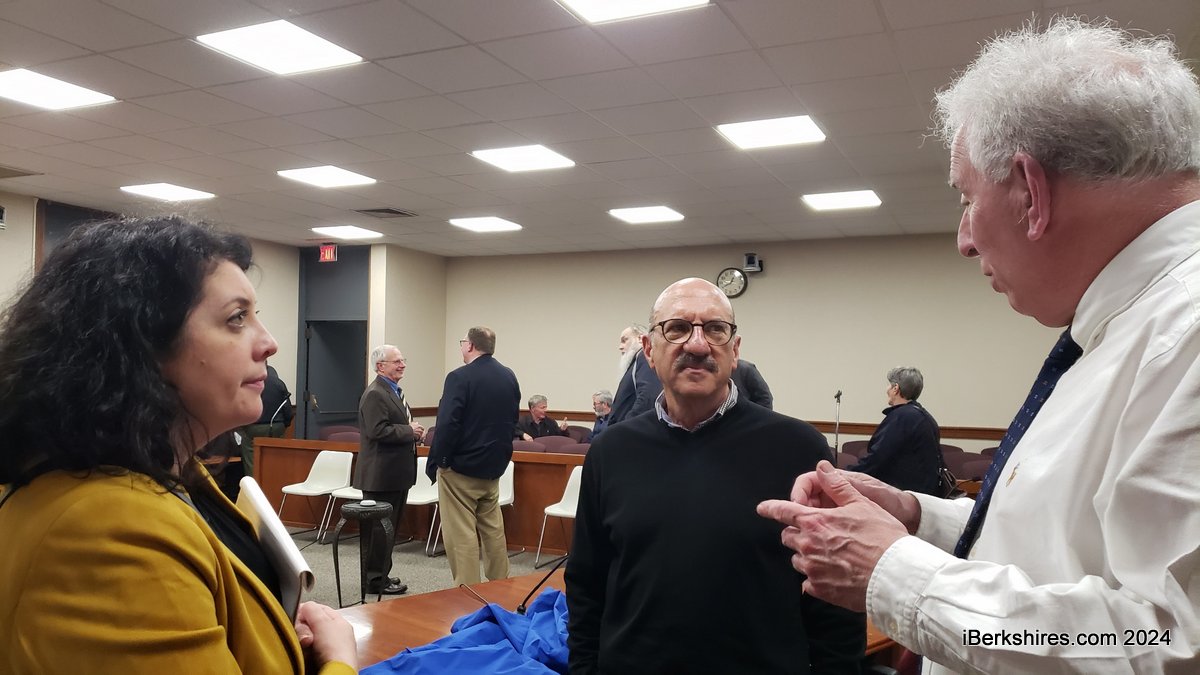Rent Control Rules Stymie Tenants' Mobile Home Park Purchase
|
The Mobile Home Rent Control Board struggled to relate the city's ordinances to the tenants association's need to raise rents to pay for a mortgage and improvments at Wheel Estates. |
NORTH ADAMS, Mass. — The Mobile Home Park Rent Control Board on Monday wrestled with the question of how it could accommodate a request from residents of the Wheel Estates park to facilitate their purchase of the property.
Park residents are looking to exercise their right under Massachusetts law to match an offer by a third party to purchase the park. Wheel Estates' owner, Rochester, N.Y.,-based Morgan Management, has signed purchase and sales agreement from Connecticut's Real Estate Seekers LLC for a reported price of $2.73 million.
The Wheel Estates Tenants Association wants to match that offer with the help of a low-interest loan from a New Hampshire-based non-profit called Resident Owned Communities USA.
The problem is that ROC USA's financing arm wants a guarantee that the park's rents will be high enough after the sale to pay the interest on the note.
While members of the Rent Control Board appeared generally to support the idea of resident-ownership at the park, they were reluctant to commit the board in writing to a hypothetical rent increase. But the board agreed to take up the issue again on March 13.
The clock is ticking.
The purchase-and-sales agreement with Real Estate Seekers was signed on Dec. 27, giving the tenants group a March 27 deadline to have its financing in place in order to supplant the Connecticut firm as the buyer.
"You're asking us to sign off on a 15-year plan," Chairman Wayne Wilkinson said. "Unfortunately, this model doesn't fit with the way the Mobile Home Rent Control Board operates. The way we are set up is the petitioner petitions us for an increase, but the board sets the rate."
Tenants Association President Sandra Overlock and Vice President Jesse Martinez presented their request to the board along with ROC USA's Mary O'Hara and a representative from Shelburne Falls-based non-profit the Cooperative Development Institute.
O'Hara explained that while Massachusetts, New Hampshire and Vermont have laws that on the books supporting resident-ownership of manufactured home parks, the technical support and financing available through ROC USA is a recent development.
Since it was founded in 2008, the non-profit has helped facilitate resident purchases of five parks in Massachusetts, according to its website, rocusa.org. CDI has worked with seven successful conversions, including three in Vermont.
"This is the first time we've been in a situation where the model had to be implemented in a rent-controlled environment," O'Hara said. "I'm here to say, 'Lucky you.' You're the first ones, and hopefully we can make this work."
At several points on Monday, Wilkinson described the process of "making it work" as fitting a square peg into a round hole.
The board had several concerns about the tenants' request.
The most difficult to overcome, perhaps, is the fact that the city ordinance governing the Rent Control Board explicitly prevents rent increases to cover "debt service."
|
Tenants Association President Sandra Overlock, left, appeared before the board with Mary O'Hara of ROC USA and Andrew Danforth of Cooperative Development Institute. |
O'Hara and CDI's Andrew Danforth noted that while that is true, the law does allow for a return on investment, and in this case the "landlord" would be a non-profit, an association of resident owners, who would not seek any return on its investment.
North Adams Administrative Officer Michael Canales noted that the commonwealth specifically encourages resident ownership of parks. Since such ownership arrangements are only possible through loans, it seems antithetical to have a city ordinance in opposition to those loans, Canales said.
Mayor Richard Alcombright, also in attendance, said he understood the difficulty of working within the city's ordinance but urged the board to "think outside the box."
Board member Joseph Gniadek expressed opposition to the idea of setting a rate to cover loans that include both the purchase price and $1 million in capital improvements. Gniadek noted that the Rent Control Board has been burned before by owners who sought increases to cover future improvements and then never completed the work.
Board member and City Councilor Marie Harpin said she was disappointed more residents of the park were not present at Monday's meeting.
Overlock said the tenants have had "many successful" meetings about the idea of resident ownership, and 101 of the park's 185 occupied homes have paid a $100 membership share to be part of a cooperative. More people are signing up every day, Overlock said.
"They want to have a say in what needs to be done," she said. "We've been 20 some-odd years waiting for these projects to be done.
"They're all excited about getting this park be resident owned."
Tags: mobile home park, rent control, tenants association,


















